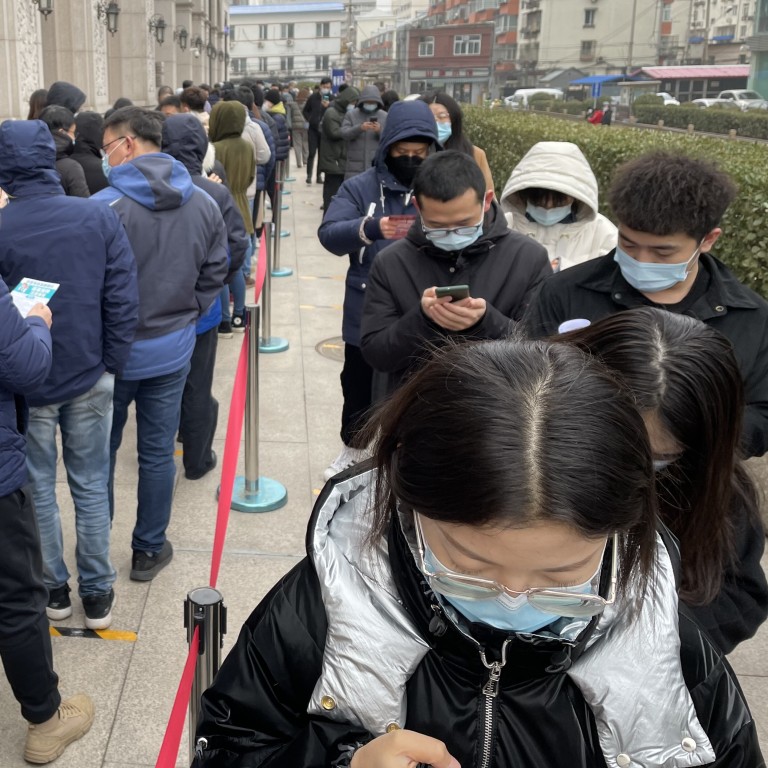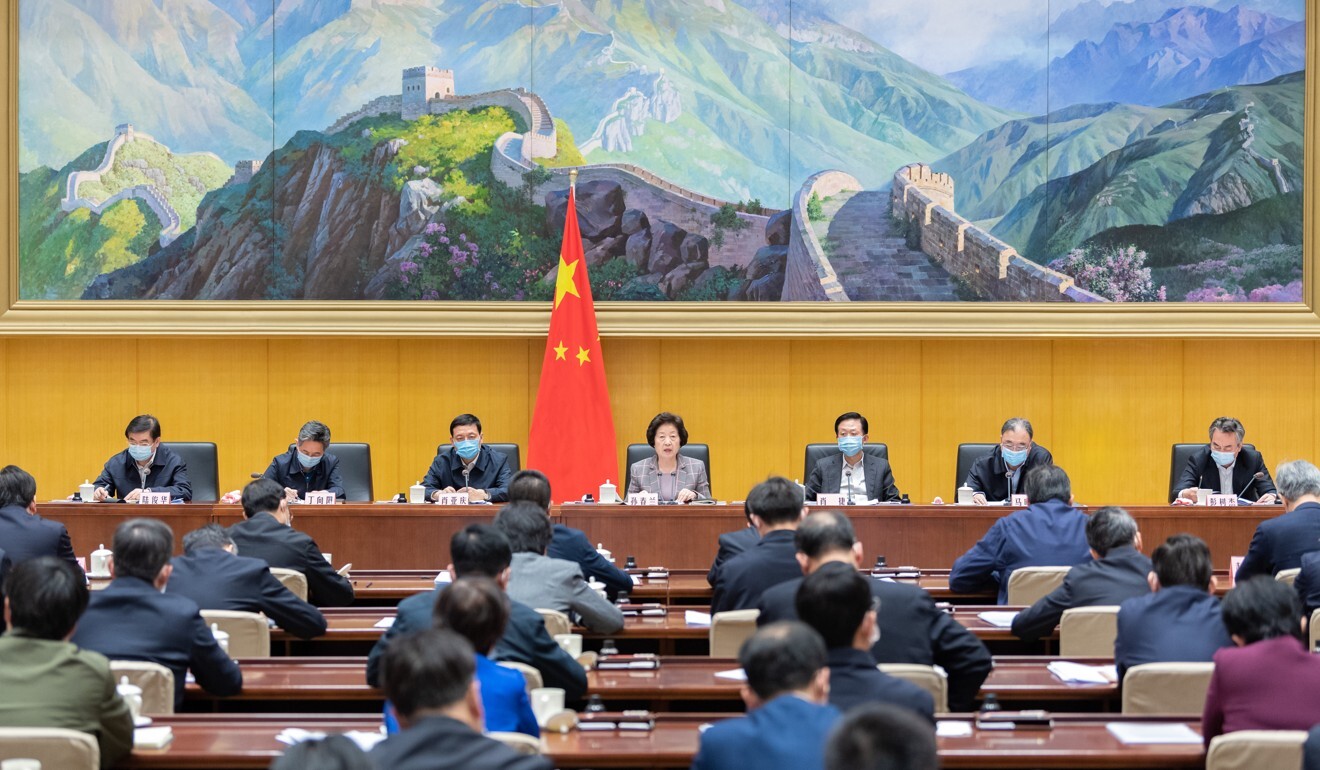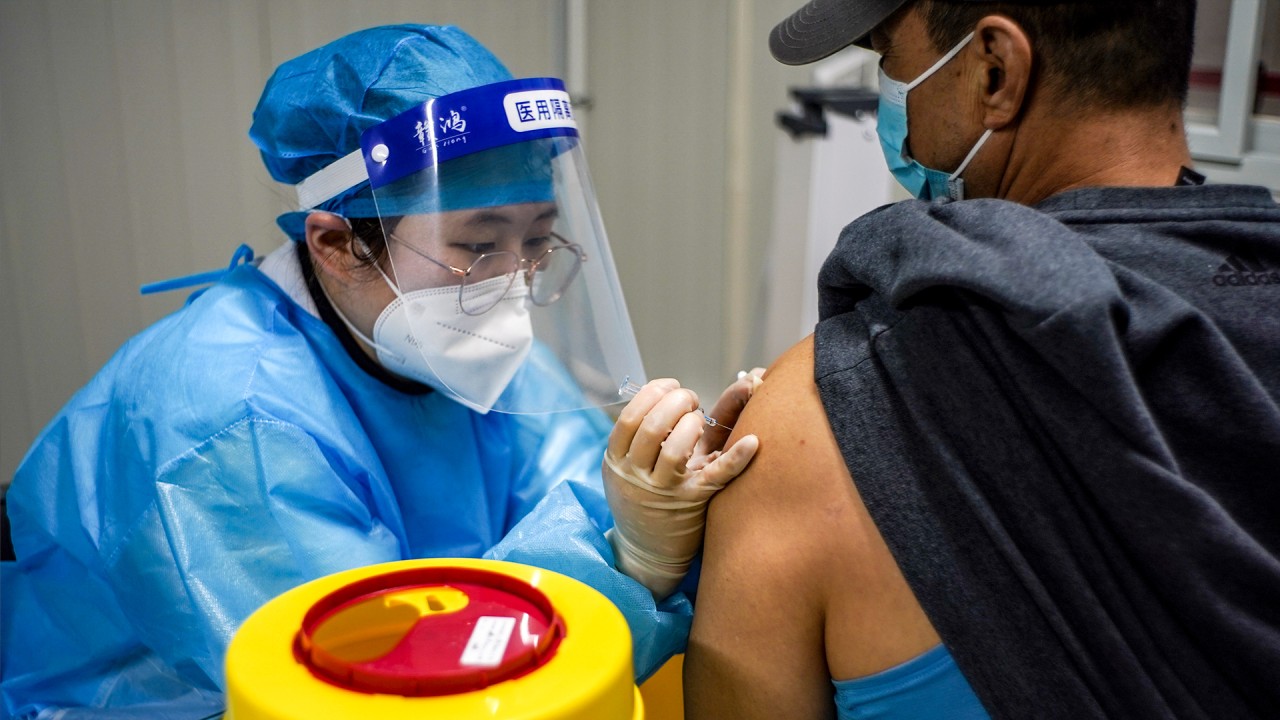
Coronavirus: China piles on pressure to get vaccinated as country targets 10 million injections a day
- The goal of getting 40 per cent of the population inoculated by June will require a major increase in the number of doses administered
- Some public servants have been warned they will face disciplinary action if they refuse to receive the injections
The National Health Commission announced it had administered more than 91.3 million doses and its figures suggest the daily average has risen from 1.6 million last Saturday to 2.6 million.
The daily total must rise to around 10 million doses if the June target is to be met, and local governments were told during a teleconference with Vice-Premier Sun Chunlan on Monday to accelerate their vaccination rates and regard it as a “major political task”.
Public servants, university students, teachers and doctors in various provinces have all said they are now being put under pressure to get vaccinated.
A typical case is that of Xiao Jing, a civil servant from Jiaxing in Zhejiang province, who this week was told she must get vaccinated unless she could provide a doctor’s letter explaining why she should be exempt.
Xiao said her colleagues had been given a similar instruction, including one man who was reluctant to get the injection because he had heart surgery a few years ago. They were warned they would be publicly reprimanded by the Communist Party’s disciplinary agency if they refused, she said.
China’s Sinovac Biotech says its Covid-19 vaccine appears safe for children
“The inoculation is supposed to be voluntary, but I feel I don’t have a choice. I will see if any doctor will write me that diagnosis letter,” said Xiao, who said she was worried that she might suffer an adverse reaction to the vaccination.
Reaching the June target will also require a rapid increase in vaccine production to ensure there are enough doses to meet both domestic demand – which Beijing has now said will be its priority – and China’s commitment to supply other countries.
The industry ministry said that daily production had risen to 5 million doses a day, up from an average of 1.5 million last month.
“I believe the target of reaching 10 million a day is not hard to reach if supplies keep up – there will be days higher than the 10 million. We achieved that years ago,” said Shanghai vaccine expert Tao Lina, referring to a 2010 national drive against measles when 100 million children were vaccinated within 10 days.
“We just need to be patient and wait for the daily administered doses to trend upwards.”

But proper arrangements need to be made, including training more medical staff and ensuring that suitable facilities are provided for mass vaccinations.
Tao also said that meeting the target would require a change in attitudes and that health workers must show they are willing to receive the vaccine.
Deputy health minister Li Bin has said some people are hesitant to receive the vaccine because they feel the epidemic is under control in China while others want more information about the jabs’ efficacy. No Chinese vaccine has released the final peer-reviewed data from its phase 3 trials, only interim results.
In the past week China has stepped up an education campaign featuring well-known public health experts to encourage people to get vaccinated.
On Wednesday, Shao Yiming, a researcher with the Chinese Centre for Disease Control and Prevention (CDC), told state broadcaster China Central Television that the country risked losing its “absolute advantage” of having almost no new cases while countries that were vaccinating large numbers of people established an immunity barrier.
Shanghai becomes first mainland Chinese city to offer expats Covid-19 vaccines
Gao Fu, the director of the CDC, told People’s Daily that people had a “social responsibility” to receive the vaccine, while Zhang Wenhong, an infectious diseases specialist, said “those who don’t take Covid-19 vaccines will suffer” when the country’s borders opened.
China has also shifted its focus, after inoculating members of high-risk groups last year, and is now targeting working people ages 18 to 59. The over-60s and those with underlying health conditions such as high blood pressure and diabetes will follow.
Vaccination is being carried out on the principle of “informed consent” but some local authorities are offering various carrots or sticks to increase uptake rates.
Daxing, a district of Beijing, is offering supermarket coupons to those who get injected while Haidan, another area of the capital, is publicly listing the take-up rate at businesses and industrial areas in an effort to shame those lagging behind.
Tao said people might become more motivated once it became “more common” to receive the vaccine. He suggested that authorities could move from trying to encourage people to get vaccinated to “punishing” those who refused or make it compulsory.

01:55
China pushes mass vaccinations to build herd immunity against Covid-19
Scott Rosenstein, director of the global health programme at Eurasia Group, said that while mandatory vaccinations were a very sensitive issue around the world, it would soon become a debate in countries where large numbers were reluctant to receive the shots.
“In some cases, people might not be able to work in nursing homes or health care centres if they refuse to get vaccinated, and the same in schools or any settings with high-risk individuals. When these policies are rolled out they will certainly get a lot of pushback from some communities and it will be a difficult balancing act and communications challenge for leaders and public health officials to manage,” Rosenstein said.

